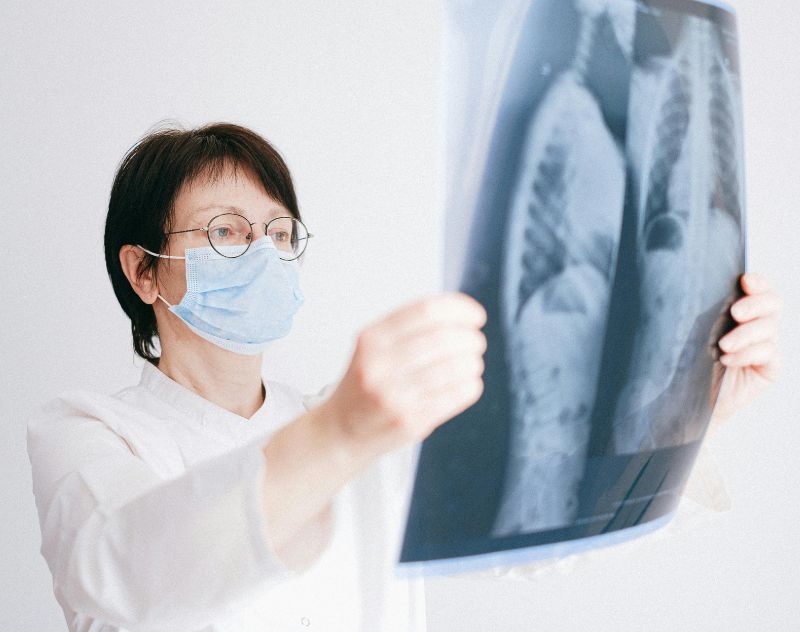Lung cancer is a serious disease that often goes unnoticed until it reaches an advanced stage. Understanding the symptoms lung cancer stages can make a huge difference in early detection and effective treatment. The earlier it’s caught, the better the chances of survival. In this blog, we’ll walk you through the signs and symptoms you should be looking out for, how lung cancer progresses in stages, and what you can do if you suspect something might be wrong. We’ll also briefly mention where quality treatment options, such as Black Lion Hospital Addis Ababa Ethiopia, can offer support.
Understanding Lung Cancer and Why Early Detection Matters
Lung cancer occurs when abnormal cells grow uncontrollably in one or both lungs. These cells do not develop into healthy lung tissue but instead form tumors and interfere with the normal functioning of the lungs. The disease is among the leading causes of cancer deaths globally, primarily because it is often diagnosed late.
Early detection of symptoms lung cancer stages is vital. If symptoms are spotted and addressed in the earlier stages, treatments like surgery, radiation, and chemotherapy can be more effective. Unfortunately, the disease often progresses silently.
Common Early Symptoms of Lung Cancer
Recognizing the early symptoms is key. These signs may appear subtle, but they should never be ignored:
1. Persistent Cough
One of the earliest and most common signs is a cough that doesn’t go away. While we all get the occasional cough, if you notice one that lingers for more than two weeks, especially if it gets worse over time, it could be a red flag.
2. Coughing Up Blood
Coughing up blood, even in small amounts, should always be taken seriously. This symptom usually shows up in the later part of early stages and indicates something is seriously wrong with the lungs.
3. Shortness of Breath
Even during light physical activity, shortness of breath might signal that the lungs are not functioning properly. This symptom may begin subtly but worsens as the disease progresses.
4. Chest Pain
Pain that worsens with deep breathing, coughing, or laughing could indicate a tumor pressing on the lungs or surrounding tissues.
5. Hoarseness or Voice Changes
A growing tumor can impact the nerves that control the vocal cords, resulting in voice changes. If your voice becomes hoarse for no clear reason and doesn’t improve within two weeks, it’s worth getting checked out.
6. Unexplained Weight Loss and Fatigue
Sudden weight loss and constant fatigue can be signs of many illnesses, including lung cancer. These symptoms usually indicate that the body is using up more energy to fight an illness or that the cancer has started affecting metabolism.
Breaking Down the Symptoms Lung Cancer Stages
Understanding how these symptoms evolve across different stages of lung cancer can help individuals and families prepare and seek medical help promptly.
Stage 1: Silent but Critical
At this point, the tumor is small and localized. Most people don’t notice any symptoms at all. In some cases, there might be a persistent cough or slight fatigue. Routine health screenings might be the only way to catch the disease this early.
Stage 2: Symptoms Begin to Appear
As the tumor grows and possibly spreads to nearby lymph nodes, symptoms become noticeable. Shortness of breath, coughing, and occasional chest pain might start to show up. At this stage, medical attention is essential, and treatment options are still promising.
Stage 3: More Pronounced Warning Signs
This is where things become more obvious. The tumor has usually spread to surrounding areas of the chest. Individuals may start coughing up blood, experience severe chest pain, and notice significant fatigue. Weight loss becomes more visible. Medical treatment becomes more aggressive at this point.
Stage 4: Advanced and Widespread
Cancer has spread to other parts of the body, including bones, brain, and liver. Symptoms now include bone pain, neurological issues, and more intense respiratory distress. Treatment may focus more on improving quality of life and managing pain.
The Importance of Medical Help
If you notice any of the above symptoms, especially if they persist for more than a few weeks, it’s crucial to seek medical attention. Early diagnosis saves lives. Facilities like Black Lion Hospital Addis Ababa Ethiopia are equipped with advanced diagnostic tools and cancer treatment programs that can help patients at any stage.
How Diagnosis is Done
Doctors typically begin with imaging tests like chest X-rays or CT scans. If something abnormal is found, they may follow up with a biopsy, where a small sample of lung tissue is examined. Additional tests, like PET scans and MRIs, may be used to determine how far the cancer has spread.
Treatment Options Based on Stages
-
Stage 1 and 2: Surgery to remove the tumor may be possible, sometimes followed by radiation or chemotherapy to ensure the cancer is completely gone.
-
Stage 3: Combination therapy is often used. This might include chemotherapy, radiation, and sometimes surgery.
-
Stage 4: Treatment focuses on prolonging life and managing symptoms through chemotherapy, targeted drug therapy, and palliative care.
Preventive Measures
While not all cases of lung cancer can be prevented, there are several steps you can take to reduce your risk:
-
Avoid smoking: Tobacco is the leading cause of lung cancer. If you smoke, quitting is the best step toward prevention.
-
Avoid secondhand smoke: Passive smoking can also increase the risk significantly.
-
Reduce exposure to harmful chemicals: Avoid asbestos, radon, and industrial pollutants as much as possible.
-
Get regular check-ups: Especially if you’re at high risk due to family history or smoking, regular screenings can detect early-stage cancer.
Support and Resources
Coping with a cancer diagnosis is never easy, but support is available. Hospitals like Black Lion Hospital Addis Ababa Ethiopia, offer counseling, treatment guidance, and access to support groups. Staying informed, connected, and proactive can make the journey easier for both patients and their loved ones.
Final Thoughts
Being aware of the symptoms lung cancer stages can truly be life-saving. Lung cancer is not a death sentence if caught early, and taking your symptoms seriously could be the first step toward recovery. Whether it’s a persistent cough, unexplained fatigue, or chest pain, don’t delay seeking medical advice.
With advanced treatment options and early detection, survival rates are improving. If you’re in Ethiopia or nearby, Black Lion Hospital Addis Ababa Ethiopia stands as a trusted facility offering quality care and comprehensive cancer support. Your lungs matter—pay attention to what they’re telling you.

